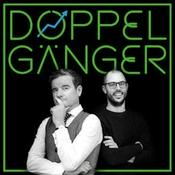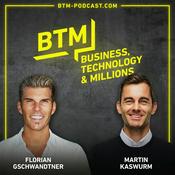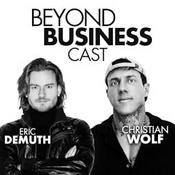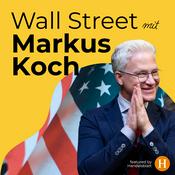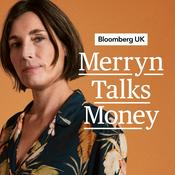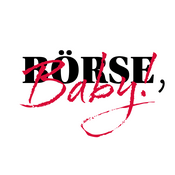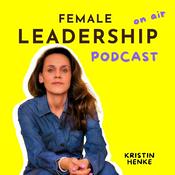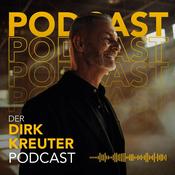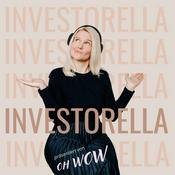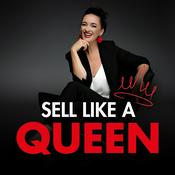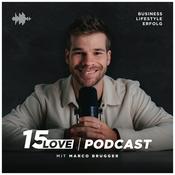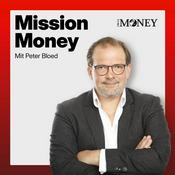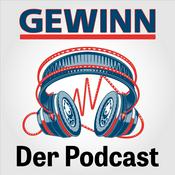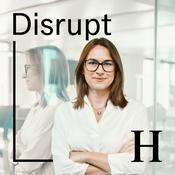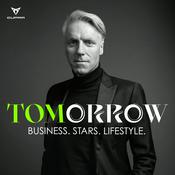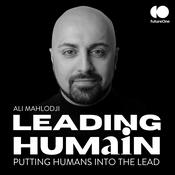46 Episoden
- In September 2020, the first episode of our corporate podcast Greiner Talks went online: an interview with Fred Luks, an expert in sustainable transformation. In the years that followed, the podcast's appearance, structure, and sound changed somewhat, but one thing always remained the same: inspiring guests whose statements, ideas, and expertise provoked thought. The goal was clear: to provide food for thought that would help us overcome the great challenges of our time.
Here are a few facts and figures about Greiner Talks:
45 episodes, 1 host
Approximately 20 minutes per episode
More than 17,000 plays
More than 700,000 impressions on social media
Lots of positive feedback and inspiration
We came up with something very special to mark the end of Greiner Talks: Alexander Berth switched to the other side of the microphone and looked back on his five years as podcast host. Elisabeth Reiter from Greiner's communications team chatted with him about his personal highlights, lessons learned, and the impact such a format can have.
„After almost 50 conversations, I discovered a pattern that really surprised me. We had guests from all sorts of professions and fields, but they all ended on a similar note: To be hopeful and to be positively looking into the future.”
You can listen to the last regular episode with (the first and last guest) Fred Luks here.
All interviews in the podcast series can be found here.
Greiner Talks was our podcast on the topic of transformation. Alexander Berth spoke with experts from around the world to learn more about their perspectives on the future of our economy and society. - Ideas ahead of their time
Much has changed in the world since the first episode of Greiner Talks with Fred Luks was released in 2020. For Fred Luks, the biggest personal shift was becoming a father. This life event sharpened his sense of urgency: “I’m becoming more impatient because it’s so obvious that we are fundamentally on the wrong track as a society.” Yet fatherhood also strengthened his commitment to hope ─ a theme deeply embedded in his books and writing.
Professionally, Luks has spent decades navigating academia, financial services, and public discourse, consistently pushing sustainability forward long before it became a mainstream corporate concern. Looking back, he admits that many of his early ideas were shaped by a certain naive optimism that didn’t always align with corporate thinking. However, he still feels that balancing pragmatic judgement with a touch of idealism remains important.
Complex times require new thinking
Today’s world is even more complex ─ marked by geopolitical instability, the climate crisis, and rapid technological shifts such as AI. Sustainability often risks dropping down the priority list. But Luks argues this is precisely why it matters more than ever. One thing is clear: Complex times require new thinking.
“We need ideas about how we live together, how we treat animals, how we eat, and how we organize mobility.” – Fred Luks
Yet he warns against oversimplification. Simple solutions appeal to our desire for security, but they rarely work for systemic problems. Instead, Luks calls for honesty, curiosity, and a willingness to embrace complexity ─ paired with strong policies and economic frameworks that make sustainable choices not only possible, but attractive.
So how do we keep moving forward? Fred Luks believes it’s about balancing realism with optimism. It’s about making sustainability attractive, engaging and fun – always connecting it to everyday life. And ultimately, seeing it as part of the “good life”. Get inspired and listen to the full episode now!
Our corporate podcast Greiner Talks is coming to an end. Stay tuned for a special goodbye episode with our host to get some insights, background information and behind the scenes – or listen back to some of our highlights exploring what it takes to change the world.
Click here for all episodes of Greiner Talks - A glimpse into the future
In the ”Future of Work Lab”, Nicky Dries studies what the perfect future of work could look like. But what will work really look like in many years from now? Of course, nobody can tell us which predictions are right – because it hasn’t happened yet. But we can take courses of action in the present that will move us closer to one scenario or the other.
Nicky Dries emphasizes that wok will definitely change in the future and will – for example – be deeply data-driven. Something that has already changed is the definition of career success, which used to be measured by salary alone. Instead, purpose, impact, and work-life balance are now becoming the new benchmarks of a fulfilling career.
“The future hasn’t happened yet; it’s not set in stone – it’s whatever we make it.” - Nicky Dries, Professor at KU Leuven in Belgium
The power to shape the future of work
A critical point Nicky Dries raises is the underrepresentation of HR professionals in the public debate about the future of work. Despite their human-centric expertise, they are often left out of the conversation. Dries calls for their active involvement to ensure that the evolving workplace remains people-focused.
But do we really have the power to shape the future of work? Drawing inspiration from the rise of labor unions, she argues that collective action – even in today’s individualistic society – can drive meaningful transformation.
For leaders, the takeaway is urgent: technology must serve people, not the other way around. Vision, critical reflection, and a commitment to inclusion are essential. As birth rates decline globally,including those previously excluded from the labor market will become not just a value – but a necessity.
The future of work is being written now – by all of us. Listen to the full episode now! - The shift from management to leadership
Tom Venning is a business trainer, facilitator and coach specializing in B2B Sales, Leadership, and Change. For him, the rise in conversations about leadership and purpose-driven leadership isn't just a trend, but a response to a deeper need of reason and security. But what is leadership, really? Tom Venning defines it simply: “Getting people to do what you want them to do – because they want to do it.” Importantly, this has nothing to do with job titles. Leadership, in his view, isn’t about hierarchy but about influence.
Resistance, engagement and navigating unpredictability
Change, of course, often brings resistance. But Tom Venning sees resistance not as a problem, but as a signal: “When people say no, it means they’re engaging. They’re drawing a boundary, saying, ‘This matters to me’. That’s far better than a fake Yes.” He encourages leaders to approach resistance with openness. People resist change, he argues, not just because they don’t understand it – but because the current state feels more real and tangible than a vision of the future. One of the simplest tools to change that? Questions. The most powerful thing leaders can do is ask simple, high-quality questions.
Tom Venning’s own journey is full of unexpected twists – quite literally. Years ago, he started building a sailing boat. It took two decades to finish. “In the end, it became a gift from my younger self. I set off down the Danube and learned to navigate not just water, but unpredictability,” he shared. His lessons: We don’t always need a detailed plan. What we need is a clear sense of why we’re doing something, and the resilience to adapt along the way.
Cultivating curiosity and courage
If there’s one competency Tom believes leaders must strengthen, it’s curiosity. “It’s the gateway to deeper understanding, creativity, and even resilience,” he said. Resilience no longer means returning to the old normal. It’s about staying grounded – even excited– in a world that constantly shifts beneath our feet. For him, good leadership is about respect. It’s about listening, observing, and helping others grow so that together, we can create something bigger than any of us could alone.
“Curiosity is the gateway to deeper understanding, creativity, and even resilience.” - Tom Venning
At Greiner, where transformation is both a challenge and a necessity, these insights couldn’t be more relevant. Our company has existed for over 155 years – and we aim to be here successfully for another 155 years.
Curious to hear more? Listen to the full episode now! - In a country like Austria, with a functioning healthcare system and good public infrastructure, one might think that social justice is already well advanced. But Susanne Hamscha takes a more nuanced view: “We see people in our society who have a harder time, who are less privileged – whether in terms of access to education or the labor market. Only when opportunities are truly distributed fairly can we speak of a fair society.“ This is not just a geographical issue, such as Europe, but also concerns structural inequalities within our society. Those who only look at diversity superficially often overlook the deeper causes of inequality – and thus ignore enormous potential.
When people talk about sustainability, many initially think of ecology. But without social sustainability, any environmental strategy remains incomplete. After all, only a society in which people can live healthy, safe lives with equal rights is sustainable in the long term. Companies have an enormous influence on who gets opportunities, who can advance, and who is heard. They decide on working conditions, development opportunities, and corporate culture. Studies show that social sustainability pays off: a diverse and inclusive work environment can substantially contribute to success and profitability as many studies proof. However, this does not happen overnight—since this work is a marathon, not a sprint.
“You always have diversity in companies. How can you use this diversity as a resource in order to do whatever it is you're doing a little bit better?”
– Susanne Hamscha, Managing Partner at factor-D Diversity Consulting
Based on her work with numerous companies, Susanne Hamscha has derived three key recommendations:
Focus on inclusion: Instead of just counting diversity, you should create a culture where everyone feels welcome and heard.
Holistic view: Creating equal opportunities isn't just about HR, but also product development, communication, and leadership.
Long-term thinking: The biggest mistake is to put the issue on the back burner in times of crisis. That's precisely when diversity can be part of the solution.
Listen now and learn more about social sustainability in a corporate context!
Weitere Wirtschaft Podcasts
Trending Wirtschaft Podcasts
Über Greiner Talks
Climate change, plastic pollution, social inequalities – Greiner Talks is our podcast about sustainability and transformation. As one of the world´s leading suppliers of plastics and foam solutions, Greiner is more committed than ever to transformative business change. Accordingly, Alexander Berth from the Greiner People & Culture team confers with experts from around the world, in order to share their perspectives and knowledge.
Podcast-WebsiteHöre Greiner Talks, Alles auf Aktien – Die täglichen Finanzen-News und viele andere Podcasts aus aller Welt mit der radio.at-App
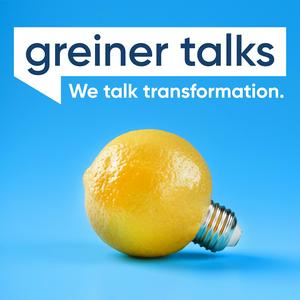
Hol dir die kostenlose radio.at App
- Sender und Podcasts favorisieren
- Streamen via Wifi oder Bluetooth
- Unterstützt Carplay & Android Auto
- viele weitere App Funktionen
Hol dir die kostenlose radio.at App
- Sender und Podcasts favorisieren
- Streamen via Wifi oder Bluetooth
- Unterstützt Carplay & Android Auto
- viele weitere App Funktionen


Greiner Talks
Code scannen,
App laden,
loshören.
App laden,
loshören.


